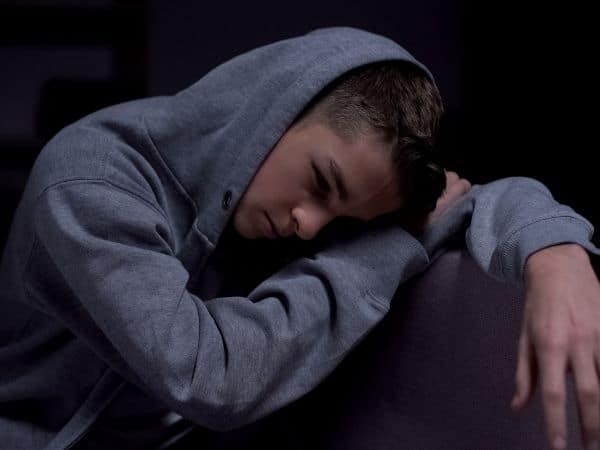Detox from opiates can produce withdrawal symptoms ranging from flu-like symptoms and insomnia to irregular heartbeat and anxiety. With symptoms like that, it’s understandable why it is so difficult to stop using opiates. Avoiding withdrawal symptoms is one of the main reasons people develop an opiate use disorder.
Currently, there are millions of Americans stuck in the vicious cycle of seeking opiates to avoid withdrawal symptoms. In 2018, nearly 47,000 people died from an opioid overdose. There is a way to successfully detox from opiates without the interference of negative withdrawal symptoms; you can implement ways to manage them.
What Is Withdrawal Management?
Withdrawal happens because your body has become used to having opiates in its system. The brain thinks opiates are necessary for the body to function normally. When it feels the effects of opiates leaving the body, it reacts by producing negative symptoms. Withdrawal can be severe and unpleasant, which makes it impossible to focus on learning sober skills that will help you stay in recovery after detox.

Doctors have created programs to overcome this problem through withdrawal management. Managing opiate withdrawal symptoms means getting the physical and psychological care you need to cope with and reduce the adverse effects associated with detoxing. Various methods of opiate withdrawal management ensure that all your needs are met during opiate detox. Medications are prescribed to reduce cravings, as well as physical discomfort. You may find you suffer from co-occurring disorders, a mental health condition, and an opiate use disorder. If so, you can receive treatment for both at the same time.
Your opiate detox plan is unique, just like your symptoms and reasons you began using opiates. Through an extensive evaluation, doctors will be able to create your individualized treatment plan.
Opiate Use and Withdrawal Assessment
The assessment or evaluation is conducted to determine physical, psychological, and biological factors that may contribute to your opiate use disorder and detox. Because withdrawal symptoms can start appearing as soon as eight hours after taking the last opiate, treatment will begin quickly, so you don’t suffer unnecessarily.
Withdrawal management begins with medication to ease cravings and other negative symptoms.

Medication Therapies for Opiate Detox
The most common medications used in the treatment of opiate detox typically include methadone and buprenorphine, but others can help ease withdrawal symptoms.
Methadone, Buprenorphine, and Naltrexone
Methadone, buprenorphine, and Naltrexone are synthetic opioids.
— The medication Methadone produces the same effects as opiates but is given in reduced strength. Under the care of a physician, where a medical staff administers the dose each day, methadone is an excellent treatment option. Methadone is not a medicine to take for the rest of your life. Instead, your doctor will taper you off the drug slowly, allowing your body to adjust as the doses lower over time. This procedure prevents the severe withdrawal symptoms that occur when you abruptly stop taking opiates.
— Buprenorphine is a newer treatment for opiate detox that eases withdrawal symptoms during opiate detox. It binds to opioid receptors in the brain but does not stimulate the brain like prescription pain killers, which flood the reward center in the brain with dopamine, the pleasure chemical.
Buprenorphine provides a low-level activation of the opioid receptors. It is just enough to prevent withdrawal symptoms and eliminate cravings, but not enough to make you feel high or euphoric. There is also a ceiling effect with this drug that blocks the effects of other opioids if taken with buprenorphine. Your doctor will taper you from this medication, too, over a long period.
— Naltrexone blocks the effects of opiates which makes using opiates undesirable. Naltrexone does not always reduce cravings or prevent other withdrawal symptoms. A study by the National Institute on Drug Abuse comparing Suboxone and Naltrexone, also known as Vivitrol, showed Naltrexone is just as effective as all other opiate detox medications.
Clonidine, Lofexidine, and Benzodiazepines
Clonidine, Lofexidine, and Benzodiazepines work differently than opiate substitutes.
— The medication Clonidine can help with stomach cramps, sweating, vomiting, and diarrhea. Unfortunately, mixing clonidine with opiate substitutes is not advisable.
— Lofexidine is the newest opiate detox medicine on the market. It is similar to clonidine in that it reduces withdrawal symptoms like cramping, spasms, and insomnia.
— Benzodiazepines also treat sleep disturbances, as well as anxiety and seizures. These are medicines that are for short-term use only and under strict medical care.
All medications used to manage withdrawal work best when combined with behavioral therapies.
Behavioral Therapies for Opiate Detox
Behavioral therapies work to change behaviors regarding opiate use. There are multiple types of behavioral treatments that complement medication-assisted programs in managing withdrawal symptoms. While your doctor prescribes medication to ease withdrawal symptoms, a licensed mental health counselor will guide you through behavioral therapies.

Initially, medical professionals use behavioral therapies for mental health disorder treatment only. Because many people with substance use disorders also have mental health disorders, or co-occurring conditions, these treatments work well for both. In 2019, 9.5 million adults over 18 had both a mental illness and a substance use disorder.
Examples of behavioral therapies include:
— Cognitive-behavioral therapy is a form of talk therapy that works to change your thought processes to change your behaviors.
— Contingency management therapy is a form of treatment that rewards you for positive behaviors, like staying sober.
— Motivational interviewing is used to help those not ready for sobriety, recognize the damages drug use has caused in your life, and use that to motivate you to pursue recovery.
— Group therapy and education are forms of therapy that teach you early recovery skills, relapse prevention skills, drug education, coping skills, and life skills to help you avoid a relapse when you return home after detox and rehab.
— Family therapy includes your whole family since they are affected by, and maybe a reason for, your substance use disorder. They too need to heal and learn how to support your recovery.
In addition to medication and behavioral therapies, many detox treatment facilities offer holistic and alternative therapies.
Holistic and Alternative Therapies
Recovering from an opiate use disorder requires healing of the mind, body, and spirit. Drug use affects the whole body, which is why it needs treatment in recovery. Holistic and alternative therapies may include massage, Tai Chi, Yoga, meditation, acupuncture, fitness, art, and music therapy.
Amid an opiate use disorder, your thoughts focus on seeking and using opiates. They are not on nutrition and the contribution of vitamins and minerals to good health. While in a detox program, however, you can receive nutritious foods to overcome any malnutrition caused by opiate misuse. Your body can experience severe dehydration while using opiates and during opiate detox. Therefore, one goal in treatment will be to rehydrate your body.
Finally, you will manage withdrawal symptoms by getting quality sleep on a structured routine. Sleep disturbances can occur during opiate detox. Doctors understand the importance of sleep, however. It is when the body restores and heals parts that need it. Learning how to get adequate sleep can reduce symptoms like anxiety and irritability. Restorative sleep can also aid in rebalancing hormones and chemicals in the brain.
If you want more information on managing opiate withdrawal symptoms or would like to take our medication-assisted withdrawal program, call us at 800-719-1090. We have treatment specialists available to answer your questions around the clock. We are a premier detox center in Florida, located at 13550 Memorial Highway Miami, FL 33161, offering medication, behavioral, and holistic therapies to treat your unique symptoms.

